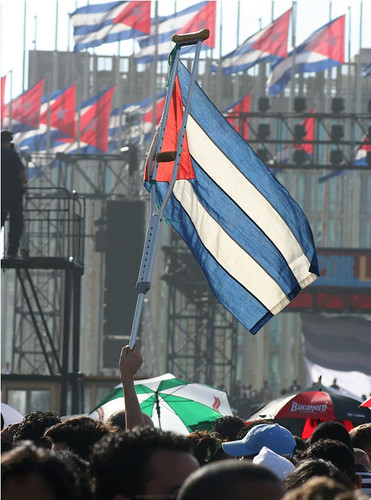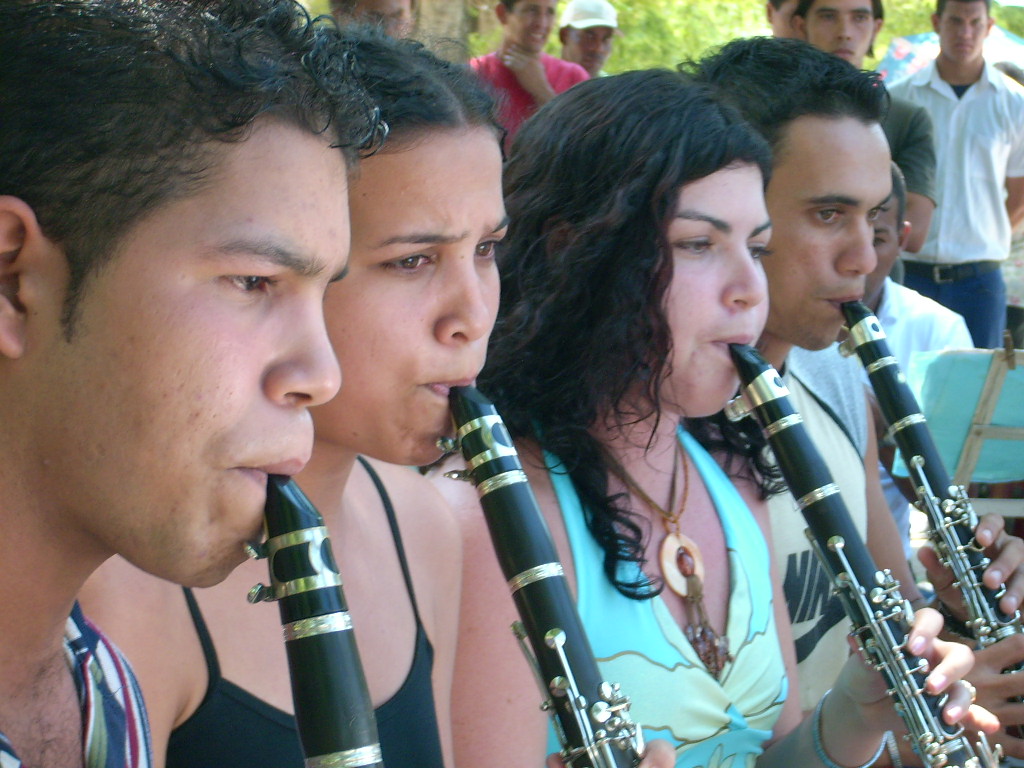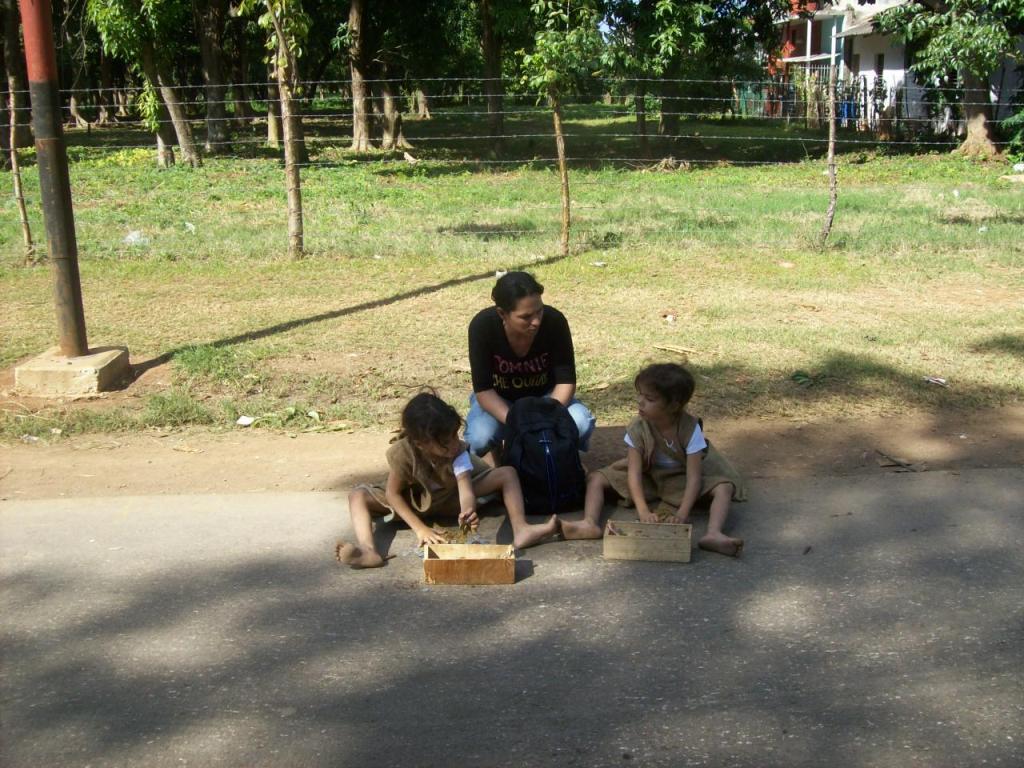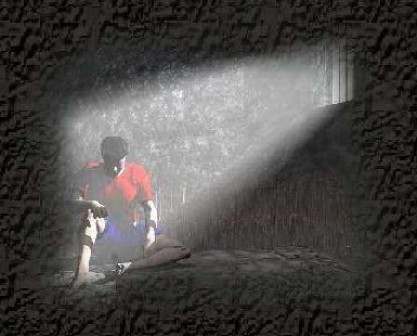Given the different and legitimate concerns that are displayed by a large part of society with regard to the measures outlined in the Cuban economic and social future, I offer my opinion, because of the indifference and the disbelief as well as the indolence and concerns of the citizens, which deserve attention.
There are concerns in sectors of the population about the real intention of the government to introduce reforms. It is true that there is an unfinished program to discuss in the next Congress, which has been published and will be “discussed and analysed” from its foundations, but the mistrust concerning its likelihood of benefiting society and that it will contribute to economic solvency and happiness crowns the plan with skepticism before its inception. There are so many broken promises and announcements of corrections that don’t correct anything, that a lack of confidence has lorded over and installed itself in a good portion of our fellow citizens.
My experience in these subjects was enriched and reaffirmed recently during a pleasant and fruitful interchange with a full and heterogeneous group of people. Some shared a triumphalist spirit which claims to infuse the leadership cadre of the country with a brave decision to carry out these proposals or guidelines and the lack of criticism generated: is this the system they’ve classified as a “model” and an example to imitate? If it has to be reformed because they admit that it wasn’t working well or, simply, that it wasn’t working at all, it implies a failure. But that isn’t what they’ve said until now, nonetheless, it’s something that many have known for a long time. This “model of inefficiency and anti-democracy” for many decades has ignored the needs and wants of the people and has listened to and prioritized foreign interests over their own needs, thus showing contempt to their comrades on the archipelago.Why weren’t these reforms undertaken sooner? Why just now?
More than two hours went by in which a civil tone wasn’t always maintained; many became indignant that this might be yet another demagogic commercial like that of the “correction of mistakes and negative tendencies” of the ’80s, which was followed by an arrogant “businesslike perfection” — which lasted until the beginning of this decade — and went on to detail the full and successful (for them) catalog of snipe-hunting that has characterized as floating our historic leaders on an unmovable peak of “regression”. Thus, in the group there was consensus in we defined as indisputable: the recognition that the current model failed and that updating it to keep the country moving in the same direction is an act of survival of those who savor and have tasted the honey of power for the last half century, and not a gesture of justice toward Cuban society.
We are not forgetting (we cannot nor should we) that the black and white times of demagogic slogans and the dizzying musical litany about the climb to “The Olympia of the Proletariat” was the refrain of an era’s Hit Parade. We sought strength in power, and it was necessary to dazzle the poor — the majority — confronting them with “the oligarchs who exploited” them or owners of giant ranches, monopolies, consortiums, and even small businesses — who were and are minorities in society — to send the message of the people’s revolution to the world. Thus, even a poetic allegory was seen as a suspicious sign of weakness in the bourgeoisie in moments of liveliness, fishing without a pole and “socialism with reverie“. To think differently remained prohibited by decree.
I have always wondered why we turned ourselves over resolutely to a patrón who persecuted the poets with prose and independent metaphors, and sent for “… Attila the Hun’s colts” to hunt them down. Had César Vallejo and Roque Dalton materialized, perhaps they’d have been more honest in recognizing their mistakes and observing that communism (read: state capitalism; always metamorphosed the same) has been shown to be “an aspirin of the size of … an aspirin!” nothing spectacular. Thus, the ideological Cuban invention didn’t get close to that which it alleged was its initial most elevated and humanist purpose.
Caudillismo — strong man rule — was the strategy to inject prohibitive laws into the arteries of society with the centralizing and nauseating purpose of submission. With strokes of pink teque (the empty rhetoric of political discourse and its phraseology) and red whips they manipulated the workers and looking down their noses, they rolled up their sleeves and took the elevator from demagoguery to “go down” to the proletariat and feel the “civic participation” in the process. What participation? That arising from an enslaving perception: work for me without any rights or demands! With cunning pre-concocted carbon copy phrases, they have held a speech contest; not of participation, but of general benefit for them, not for the national community. Thus they usurped all the gains they had obtained against their former capitalist patrons; now they have the audacity to say that the working class ceded it to them to form the present government of the people.
It seems that the ruling elite (or perhaps ruling bourgeoisie?) has its own vision of interpreting the Cuban reality and uses a language — glossolalia of Pentecost? — different from the rest of society, that for many years has communicated in a language that few seem to understand. Not to mention the added value, that for over half a century, it has taken from the national working masses!
A fleeting reminder leads us by the hand from comments that are not always pleasant — though necessary in order to set out from a basis of honesty, so as to make as most accurate an analysis as possible; of who we are and what we have achieved after decades of sacrifice. It’s a constructive critical look outlined from realistic or honest reading, but with new outlooks and always prioritizing that the spirit which should encourage us is the solution, not the pollution of the problems, and as a result we can get some valid questions that are worth reflecting on here.
We have all been unexpected and surprised witnesses of the critical comments made by government leaders towards the population. It turns out that now “we are pigeons with our beaks open awaiting the food they bring.” My God, from where was this idea conceived? In which planet do the government leaders live? Was it not they who confiscated (nationalized) Pepe’s fry stall, Pancho’s shoe shop, John’s plumbing tools or Kung Fu’s laundry?[i] The list of examples could be the length of fifty helpless years.
They began with the large landowners accusing them of monopoly and ended with the simple Cuban churros seller pushing a modest cart with his own willpower. It is why they continued to subjugate the citizens with the not laudable purpose of making a citizen economically dependent on the state. That has been the case and still remains to this day, even though they have disguised it in the form of paternalism; a hegemonic commitment of domination and subordination, which in this digital era is lagging behind and is condemned by the pragmatism of globalization, libertarian clicks on the Internet and technological advances in general.
One might think then that the price for raising the educational level of society or having “compelled us to think” is that it has to be done solely for the convenience of the institution of the state, and always with the patriotic, democratic and disinterested intent to the hold on power by the historical leaders.
The decades pass and Cuba seems an ageing photo; both the leaders of the State and the manner of imposing norms and implementing discipline remain as coercive and vigorous as ever. Cubans get tiny bites of freedom through development, modernity, the ever-increasing demands of society and its interaction with other individuals or groups of countries, not the will of the state. It is a narrow margin gained against the authorities and has prompted a state reanalysis and refocusing of current circumstances in favour of “maintaining everything that should be maintained” so as not to jeopardize the revolution , or namely, their own status.
In this way reforms are imposed. The reality of the political, economic and social stagnation Cuba has been led into, compared with the rate and international social levels (modernity) suggests, per se, an involution.
Many times we feel that the rest of the world moves or travels by plane whilst we walk. Long ago we should have taken action, but the government’s stubbornness and fear of loss of control or the inconsistency of what they have advocated so far has basically added to their ineptitude and indolence, as the inefficiency and infeasibility of the model has been stretched so far that the bond is about to break. Either way, the lack of self-criticism by the country’s leadership acknowledging that the current model has failed is the typical rubric of its political culture that it should not come as a surprise to all who have followed their litigant and discursive suggestions for more than five decades.
Governmental untouchability with its bad policies in almost every area and the applications of these, have demonstrated the expiration of the ideological prototype it defends. Who are those responsible for economic and social collapse in our national home? The drafting of the “Project of Guidelines for Economic and Social Policy [ii]” is another example of the arrogance that characterizes the government directive: Why introduce reforms now and not one or two decades earlier? The directives, which are now in the hands of many, were written by an elite committed to the leadership (or to themselves) who are, in short, the authors of the current crisis.
Of course we support any attempt to change what obstructs or curbs the development and welfare of society and its unfolding in the national context; but the authoritarian and controlling mentality of the minds of the leaders of government limits the good performance of any real attempt to reform, which would be those that must be made in today’s society. To this, one must add that they do not propose substantial changes, since they obviously obviate the core issues like human rights, freedom of expression and freedom of association, which are the pillars on which rest any proposal for amendments if they are to be genuine and not an ideological fairground carousel for them to continue playing for time.
We are not in the mood for warm washcloths and we must reform “everything that must be reformed” in order to allow Cubans to build their own dreams freely, which though they may not be perfect, at least would give us the opportunity to enjoy all that has been taken away under the guise of an ideology.
Also, the right of ownership should not be treated with prejudice or pseudo-paternalism and the participation of ordinary Cubans in the investment processes must be permitted, something that until now we have been excluded from.
In short, it has been such a long stay in power, and the number of accumulated problems is so high that it warrants changes instead of reforms, not just in economic and social development, as proposed by the leadership of the government, but integrally. The model is unrealizable, and has long been maintained through the force of control and obliged obedience.
I want to return to recalling the productive interchange I had with the interaction group; there was consensus that the maintenance of the system has always been prioritized regardless of the economic or human cost. So where is the humanity of which they boast? Why force this society to suffer and endure, rather than recognize the rights of the citizens? They gave us free education and healthcare (now also in crisis) and it has proved to be a sine qua non – that in modernity there is extortion – to disregard all other rights.
It is worth mentioning at this point how they are still working on the installation of a fiber-optic cable from Venezuela to access broadband Internet and have already claimed it will be “for social utility”, which they will determine, of course. And this is what we aim for as the key to development; free access to information through the mega network that is the Internet and other technological highways, and it is inevitable for the healthy progress and performance of social civility, liberalization or decriminalization thereof.
Someone then added that it seems that the claim over control of the Government has been that the capitalists will subsidize plans for a revolución against them. If they want capitalist finance, which is something they ask for publicly, why persevere in the socialist system?
My friends and I then came back to what we believe is the crossroads that Cuba’s historical leaders have always wanted to bypass, since this would imply democracy and, hence, a change in power. We therefore conclude that this point is also fundamental and an attack on development.
Those who hope that the guidelines will be the cure-all to the problems of the failed Cuban model, I recommend you check the label so that you read that it expired before its implementation. That way we reaffirm the setting of the debate that it already generates and the expectations that it sows amongst Cubans living in the archipelago. We believe it is possible to put into practice new and better challenges that will lead to other new measures, which in turn will contribute to the necessary and inevitable democratization of society. The famous theory of fine-tuning…
[i] In the years before 1959, small dry cleaning and laundry businesses in Havana, were largely in the hands of the Chinese settled in Cuba.
[ii] Document dated November 1, 2010 and drafted for discussion at the VI Congress of the Communist Party of Cuba, which will be held this the coming April.
Translated by Eric Peliza
January 3, 2011
 There are those who say that every effect has its cause and that there is no chaos in the universe. Each to his own philosophy. A friend — half joking, half serious — asked me is I could define the year when our reality became an absurdity. Something like the Big Bang of our island reality — in an implosive sense, of course, a kind of anti-Big Bang. Jokingly I replied: After seeing some of Fidel Castro’s speeches in the archive, I’d say 1959. Later, when I was alone and thinking, the joke wasn’t such a joke and the year perhaps not totally exact because I have no first-hand experience. I was born in 1983 and it was just a few weeks ago that I realized I haven’t lived in any other reality than that absurdity my friend was asking me about. Disheartening, no?
There are those who say that every effect has its cause and that there is no chaos in the universe. Each to his own philosophy. A friend — half joking, half serious — asked me is I could define the year when our reality became an absurdity. Something like the Big Bang of our island reality — in an implosive sense, of course, a kind of anti-Big Bang. Jokingly I replied: After seeing some of Fidel Castro’s speeches in the archive, I’d say 1959. Later, when I was alone and thinking, the joke wasn’t such a joke and the year perhaps not totally exact because I have no first-hand experience. I was born in 1983 and it was just a few weeks ago that I realized I haven’t lived in any other reality than that absurdity my friend was asking me about. Disheartening, no?


 I still remember how, as a teenager during the ’70s, my mother would give me sex education lessons: “Open your eyes wide and keep your legs shut tight,” was the verdict. A male-chauvinist invitation to my development, burdened by the prejudices of ancient moral concepts and different inheritances from other cultures and from our own Hispanic roots.
I still remember how, as a teenager during the ’70s, my mother would give me sex education lessons: “Open your eyes wide and keep your legs shut tight,” was the verdict. A male-chauvinist invitation to my development, burdened by the prejudices of ancient moral concepts and different inheritances from other cultures and from our own Hispanic roots.
 The weekend passed by with relative normality. I was taking my first steps in a world which was foreign to my will, and I was very far from imagining what would occur during the next 7 years and 4 months. It was a world behind the bars, full of insects, criminals, and soldiers who were real henchmen at the service of the dictatorship (save for some rare exceptions who could not find any other path of survival in a country submerged in a total crisis).
The weekend passed by with relative normality. I was taking my first steps in a world which was foreign to my will, and I was very far from imagining what would occur during the next 7 years and 4 months. It was a world behind the bars, full of insects, criminals, and soldiers who were real henchmen at the service of the dictatorship (save for some rare exceptions who could not find any other path of survival in a country submerged in a total crisis). 31 and Keeping on keeping on…!
31 and Keeping on keeping on…!
